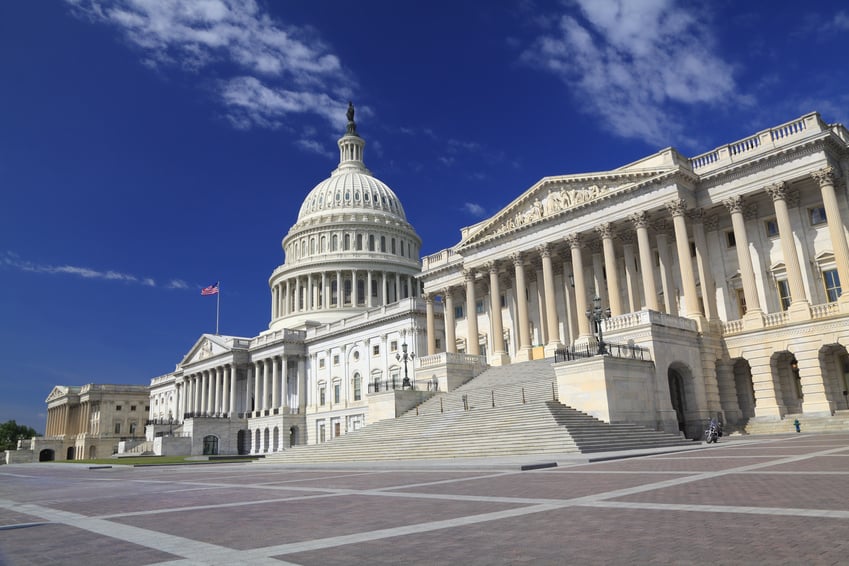On 23 January 2025, the Luxembourg parliament adopted draft Bill No. 8053 (“Law”), transposing Directive (EU) 2019/2121 on cross-border conversions, mergers and divisions, commonly known as the Mobility Directive, into Luxembourg law.
This Law introduces significant changes to Luxembourg’s legal framework on corporate conversions, mergers and divisions, particularly for cross-border operations within the European Economic Area (EEA), while providing certain clarifications on domestic and non-EEA cross-border transactions, which are otherwise maintained.
On 27 January 2025, the law deriving from draft Bill No. 7961 (“Law”) introducing significant changes to the laws governing the Register of Beneficial Owners (Registre des Bénéficiaires Effectifs (RBE)) and the Trade and Companies Register (Registre de Commerce et des Sociétés) was published in the Luxembourg official journal.
These changes align with the ruling of the Court of Justice of the European Union of 22 November 2022, aiming to balance transparency for anti-money laundering and countering the financing of terrorism purposes with enhanced privacy protections.
On 20 December 2024, the Hong Kong government gazetted the Companies (Amendment) (No.2) Bill 2024 (“Bill”) which introduces Hong Kong’s long awaited inward re-domiciliation regime. The Bill was introduced to the Legislative Council on 8 January 2025 and once enacted, will enable non-Hong Kong incorporated companies to relocate their domicile to Hong Kong, while maintaining their legal identity and business continuity.
On 23 January 2025, the US Supreme Court granted the US government’s application to end the nationwide preliminary injunction against enforcement of the Corporate Transparency Act (CTA) issued by the District Court in Top Cop Shop on 3 December 2024. This injunction is currently on appeal with the Fifth Circuit. However, a separate nationwide order that also stayed the CTA beneficial owner reporting deadline remains in place. This order was issued by a different federal judge in Smith v. US on 7 January 2025.
On January 16, 2025, the Department of Justice and the Federal Trade Commission replaced the 2016 Antitrust Guidance for Human Resource Professionals. The new guidelines now titled, Antitrust Guidelines for Business Activities Affecting Workers, reaffirm the major points of the 2016 guidelines. Wage-fixing and no poach agreements remain illegal and sharing wage information may violate the antitrust laws. However, the new guidelines identify a slew of other agreements and practices that can violate antitrust laws, including franchisee agreements with employment restraints, non-compete clauses, overly broad non-disclosure agreements, and other employment restraints.
Belgium’s new Private Investigation Act (PIA) was published in the Official Gazette on 6 December 2024, with most of its provisions having entered into force on 16 December 2024. The PIA replaces the 1991 Belgian Act on Private Detectives with the aim of modernizing the applicable legal framework in light of new investigation methods and the application of the General Data Protection Regulation. With its broader scope of application – this legislation is now also applicable to internal investigations – and the significant additional requirements it imposes, the PIA will undoubtedly impact many businesses operating in Belgium.
The Federal Trade Commission has just announced its annual adjustment to the notification thresholds that determine whether proposed transactions may trigger a filing obligation under the Hart-Scott-Rodino (HSR) Antitrust Improvements Act of 1976, as amended. The corresponding adjustments to the HSR filing fee schedule also were included in the announcement. The adjusted notification thresholds and filing-fee schedule will apply to transactions that close on or after the effective date, which will be 30 days after publication in the Federal Register and no earlier than 12 February 2025.
The Federal Trade Commission brought its first gun-jumping action in decades against crude oil producers XCL Resources Holdings, LLC, Verdun Oil Company II LLC, and EP Energy LLC, imposing a civil penalty of USD 5.6 million. A “gun-jumping” violation occurs when a proposed buyer exerts control over the operations of the target business before the expiration of the relevant waiting period under the Hart-Scott-Rodino Act. This settlement represents the largest penalty ever imposed for a gun-jumping violation.
On 26 November 2024, The Stock Exchange of Hong Kong Limited (SEHK) issued a new guidance letter (GL120-24) to inform the market of its expectations on investigations conducted by suspended issuers and the roles of the directors and the independent investigation committees (IIC). According to the latest monthly prolonged suspension status report published by the SEHK, as at 29 November 2024, there were 57 Main Board and eight GEM issuers which have been suspended for three months or more.
The Corporate Transparency Act requires “reporting companies” to file “beneficial owner” information and “company applicants” with the Financial Crimes Enforcement Network (FinCEN) as early as 1 January 2025. In a “last minute” 3 December 2024 decision, the US District Court for the Eastern District of Texas in Top Cop Shop, Inc., et al. v. Garland, issued an order temporarily enjoining the US government from enforcing the CTA and CTA regulations



